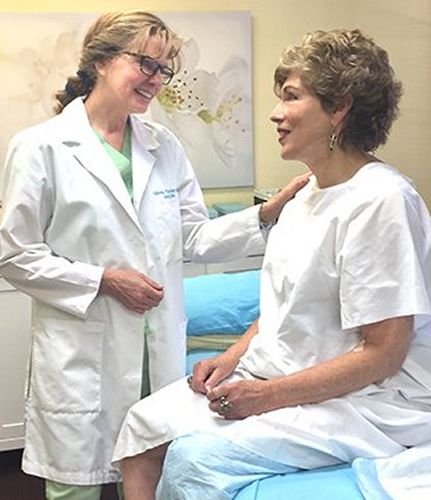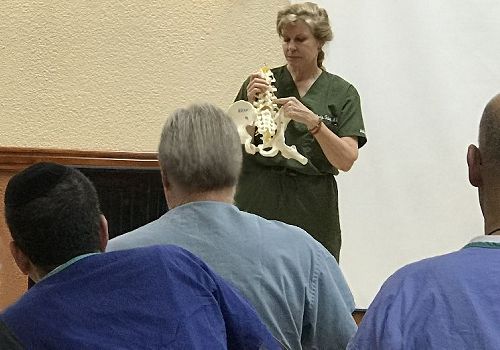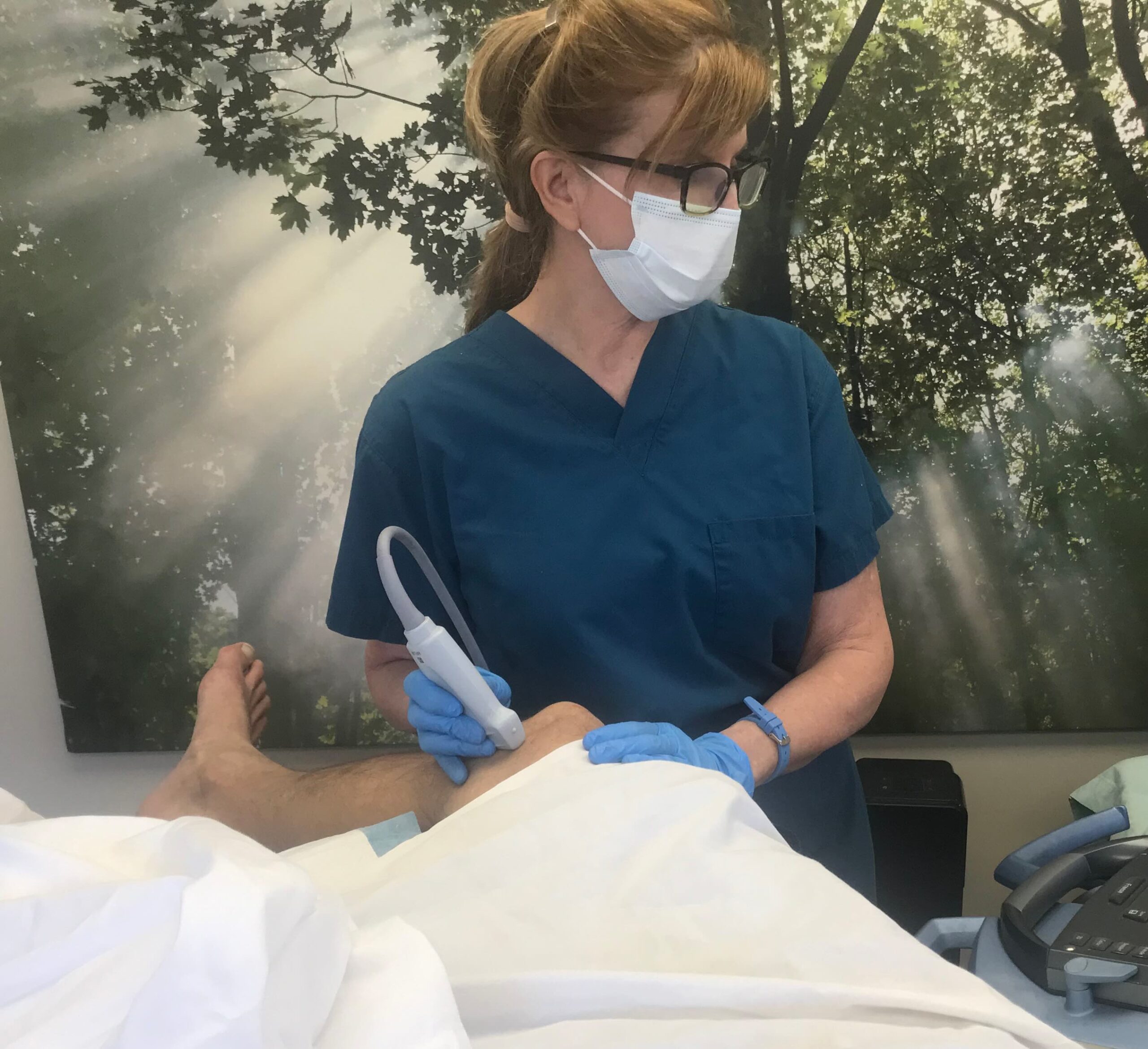Gloria Tucker, M.D., a Board-Certified Physician with Exceptional Credentials
Gloria Tucker M.D., a Phi Beta Kappa from the University of Southern California, and Board Certified Sports Medicine Specialist, is a founding member of the International Association of Regenerative Therapists.
Her PRP and Prolotherapy practice in Novato, CA serves patients from the San Francisco Bay Area, including Marin County, Sonoma County, San Rafael, Petaluma, San Francisco, Berkeley, Albany, and Oakland. In addition, people travel from all over the state of California – and the entire country – for her outstanding expertise in PRP and prolotherapy.
After graduating from the University of Southern California Medical School, she completed her residency in Internal Medicine in San Francisco and became Board Certified in Internal Medicine. Subsequently she became Board Certified in Sports Medicine and joined the Orthopedic Department at Kaiser Permanente in Santa Rosa.
Eventually, she left traditional medicine to focus her practice entirely on Proliferative Medicine, which is comprised of PRP and prolotherapy. Dr. Tucker is also a Certified Yoga Instructor and a former instructor of musculoskeletal anatomy, and is extremely committed to treating patients with Ehlers-Danlos Syndrome, as she has this condition herself.
Highly Successful in Healing Joint Pain
Dr. Tucker is one of the rare – and few – physicians knowledgeable and skilled in treating the tendons and ligaments that support the joints of the body. Often it is those very tendons and ligaments that are causing the pain, while the joint itself is not the problem. Many doctors (even non-M.D.s) utilize PRP, typically wih a few injections placed randomly around the joints.
That limited form of treatment can provide some relief, but is not nearly as effective and healing as the comprehensive approach used by Dr. Tucker. She not only treats the joints, but also carefully assesses and treats all of the contributing structures, including tendons and ligaments. This requires a much greater level of skill and expertise, as well as a thorough understanding of human anatomy. Her patients' many glowing testimonials attest to their own healing experiences resulting from Dr. Tucker's treatments.
Gloria Tucker, M.D.
Instructor of Proliferative/Regenerative Medicine Techniques to Physicians
Board-Certified Diplomate in Sports Medicine
M.D., University of Southern California
Phi Beta Kappa, University of Southern California

The Personal Medical Journey of Dr. Gloria Tucker, M.D.
Dr. Gloria Tucker, M.D., is extremely passionate about Prolotherapy and PRP because of how much it has improved her own life! As a result, she not only uses the practice and principles of Prolotherapy and PRP to help others, but also teaches her patients about their own anatomy and how to hold their own structural alignment.
"I am hypermobile, that is, I have always had loose-limbed joints. Yoga was easy for me and I loved gymnastics as a child. In Medical School, I became a long distance runner and did lots of mountain biking. However, I began having chronic low back and hip problems which I didn’t understand.", said Dr. Gloria Tucker.
Dr. Tucker stopped running and biking, and started swimming. This helped in some ways, but her back still hurt. She saw many doctors and tried strengthening exercises. Those exercises only made the pain worse. Using cortisone injections on her back and hip helped, but only for a very short while. The pain always returned. Unbeknownst to her, the cortisone was making the joint instability – which was the cause of the pain – worse.
Dr. Tucker had surgery on her hip, and even that did not help with the pain. Every morning she would lay in bed, not wanting to get up because of the unbearable pain. Although Dr. Tucker continued to swim in order to stay strong, she couldn’t walk for more than a half-mile without feeling pain. She also started gaining weight.

Back Pain and Thoracic Outlet Syndrome

So, she began spending a great deal of time at the UCSF Medical Library, reading all about lower back and hip problems. She attended multiple medical conferences on musculoskeletal medicine, where she discovered that she had Ehlers-Danlos syndrome (EDS). She struggled with Thoracic Outlet syndrome due to the instability of her spine, ribs, and shoulders.
She had some hope based on treatment from a myofascial expert. "The pain was relieved when she adjusted my spine. But in a few hours it returned," she says. Dr. Tucker did this for about a year. She also tried strengthening her core, but many of the exercises intended to help only made the pain worse.
Finally, she saw a doctor who told her that she needed prolotherapy. "We did it, and it was life changing!" Subsequently, Dr. Tucker moved on to PRP, which provided even more healing and even stronger results. She clearly understood why PRP is the first choice of professional athletes. "Now I can go to a Pilates class, ride my bike again, and go on long walks. But most importantly, I get out of bed every morning without pain!", Dr. Tucker says.
Extensive Training in Dextrose Prolotherapy, PRP and Regenerative Medicine
"Prolotherapy saved my life. I felt so hopeful again, and I wanted to share this important treatment with patients who don't respond to traditional modalities," says Dr. Tucker. "I really put my heart into learning PRP and Prolotherapy well so that I could impact my patients' lives."
Dr. Tucker was initially board-certified in Internal Medicine, and subsequently became board-certified in Sports Medicine. She knew the road to becoming an exceptional prolotherapist required even further intensive study. Learning musculoskeletal anatomy in becoming a sports medicine doctor helped significantly. In fact, she had been teaching anatomy and physiology for many years. However, she knew that even more study was important. She attended many courses and did serious training through the Hackett Hemwall Patterson Foundation (HHPF), the organization of top doctors who founded the technique of Regenerative Medicine. She is now proud to be an instructor teaching other doctors Prolotherapy through HHPF.
For seven years consecutively, Dr. Tucker went to Honduras with HHPF, where teams of doctors treated pain via Prolotherapy for underserved patients. For the first two years, Dr. Tucker trained directly under her mentor, Dr. Jeff Patterson and for the next five years, she taught other doctors. HHPF is the only organization that teaches doctors how to treat the supporting structures such as tendons and ligaments around the joints.
After training arduously in these techniques and instructing other doctors, she offered them to her patients at Kaiser Permanente and was able to treat two patients per day with prolotherapy. Very quickly, she had a 3-1/2 month waiting list. However, prolotherapy was not covered by Kaiser Permanente insurance, and she had to stop. "I saw how many people were helped by this, and I decided to start my own practice specializing in Prolotherapy, PRP, and Ozone Therapy," says Dr. Tucker.
In 2013, she opened her own practice, where her background of accurate musculoskeletal diagnoses and these life-changing treatment modalities was instrumental in helping people overcome the limitations of chronic pain.
A Comprehensive Network of Alternative and Traditional Providers
Dr. Tucker is highly knowledgeable and able to carefully assess and treat her patients and refer, where appropriate. She actively takes courses in Osteopathy, Functional Movement Assessment Techniques, Ozone Therapy, Stem Cell Treatment and Ultrasound Guided Regenerative Medicine. She is also well-connected to alternative providers, including: Chiropractic Care, Osteopathic Care, Neuro-Kinetic Therapy, Acupuncture, Physical Therapy specializing in hypermobility, Myofascial and Energy work. As a classically trained M.D., she refers her patients to orthopedic surgeons where indicated. She is committed to evaluating her patients' pain properly, and performing – or recommending – the most appropriate and effective treatment.
PRP (Platelet Rich Plasma) Is Stronger than Dextrose Prolotherapy
Having worked extensively with Dextrose Prolotherapy and PRP (Platelet Rich Plasma) for more than a decade, Dr. Tucker has found that PRP is at least five times more effective than Dextrose Prolotherapy for more-serious joint issues. This is due to the stronger anti-inflammatory effects as well as the healing growth factors and cytokines in the PRP. As a result, she recommends this modality over Dextrose in patients with long-term conditions, partial tears, older patients, and severe injuries.
Ultrasound
In addtion to using her hands for careful diagnosis and locating the exact areas to treat, Dr. Tucker also uses ultrasound for evaluation and precision in her treatments. This adds an extra layer of safety by improving visibility of the underlying structures.
Because Dr. Tucker is working on specific tendons and ligaments, and not simply injecting into the joints, the enhanced visibility provided by the use of ultrasound improves the accuracy and effectiveness of her treatments.

